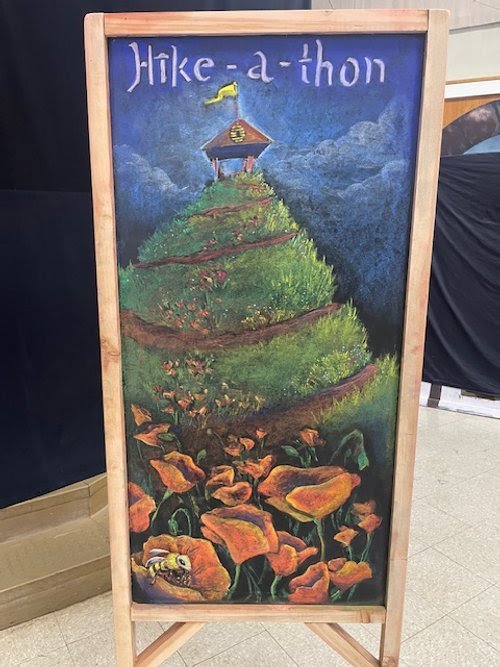Worth our Contemplation and Affection
Dear Members of The Waldorf School of Santa Barbara Community,
“As teachers,” teacher Christine Norvell writes, “we must ask what is worth contemplating, what is worth our affections, and then teach our students the same practice. Like Augustine, we must teach our students how to order their loves.”
These seem apt words for a time when so many adults and children can do things that are arguably unworthy of their contemplation and affection. These seem apt words for a time when so many children are living lives (though the fault is not theirs!) of disordered loves.
Here at WSSB the children are exposed to things worthy of their contemplation and affection. They are exposed to a healthy, broad, reverent curriculum that involves math, biographies of inspiring figures from history, cooking, sewing, botany, archery, and much else besides.
They also are exposed to the enriching world of theater.
“We must hope for moments of transcendence—moments that appear ‘out of nowhere’ and bring with them glory, understanding, and soul transformation.” These are words from writer Mandi Gerth on educating children. These words also speak to the role of theater in a child’s life. For theater, at its best, can sponsor such moments.
Recently the 6/7 Grades performed the play “Don Quixote” based on the great Spanish novel of the same name. The eponymous hero is known for his delusions and his wisdom, his foolishness and his nobility. WSSB parent Tyler Salvo, who has a Master’s degree in Spanish literature, shared these thoughts with us after watching the production:
I would like to pass along my thoughts on the lovely play the 6/7 class performed last week. I took a class dedicated not just to the Quixote but essays and short pieces written by Cervantes [the author of the novel, essays, and short pieces], so I was particularly keen to see the performance. Also: Costa [Tyler’s son] really wanted me to see it.
One of the themes from Don Quixote that always inspired me is memorably conveyed in the movie rendition of the novel, Man of La Mancha: “Madness? Who knows where madness lies? Too much sanity may be madness—and maddest of all to see life as it is, and not as it should be.” As true today as ever.
The adaptation of the novel by the 6/7 class included many of the classic scenes, such as Quixote’s charging of the windmill. I thought the class did a great job showing how lost Quixote was in his own stories. They even captured his way of speaking and the antiquated mannerisms of when the book was published—in 1605!
The other key element they highlighted well was the play within the play. Cervantes is said to be the first author to create such metafiction. Today it’s completely within the scope of what our minds accept: that a character in a play goes to see a play. In Cervantes’ time this was outrageous. Such metafiction is a testament to the boldness of the book. (Don Quixote even has a chat with the author Cervantes in one of the chapters.)
Overall, I was blown away by the incredible performance and the sheer volume of content the children performed. They did 9 vignettes, I believe. The play was one hour long!
Bravo to their ability to recall the lines that drive the play!
Thank you, Tyler, for sharing your insights.
Important Dates:
*Friday, May 16th: Hike-a-Thon (please see today’s Parent Square post)
*Monday, May 26th: No School (in honor of Memorial Day)
*Saturday, May 31st: Spring Soiree
*Monday, June 2nd at 8:45 a.m.: Strings Assembly
*Friday, June 6th: End-of-Year Potluck
With gratitude,
The Admin Team
PS The Thought of the Day is from Annie Dillard:
“How we spend our days is, of course, how we spend our lives. What we do with this hour, and that one, is what we are doing.”




